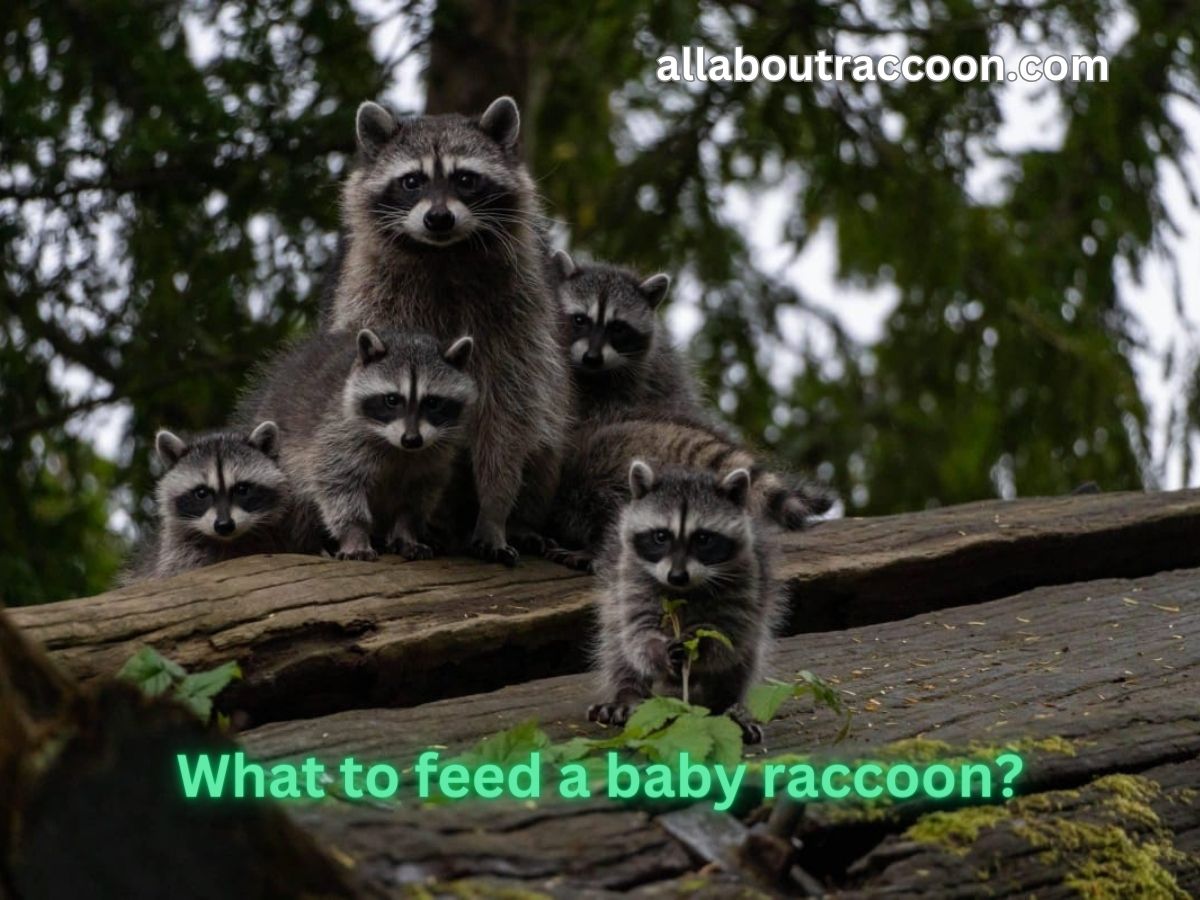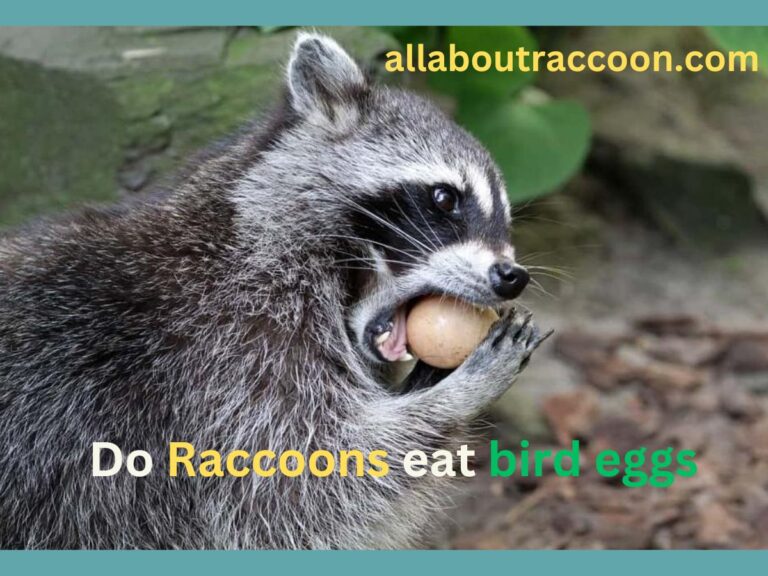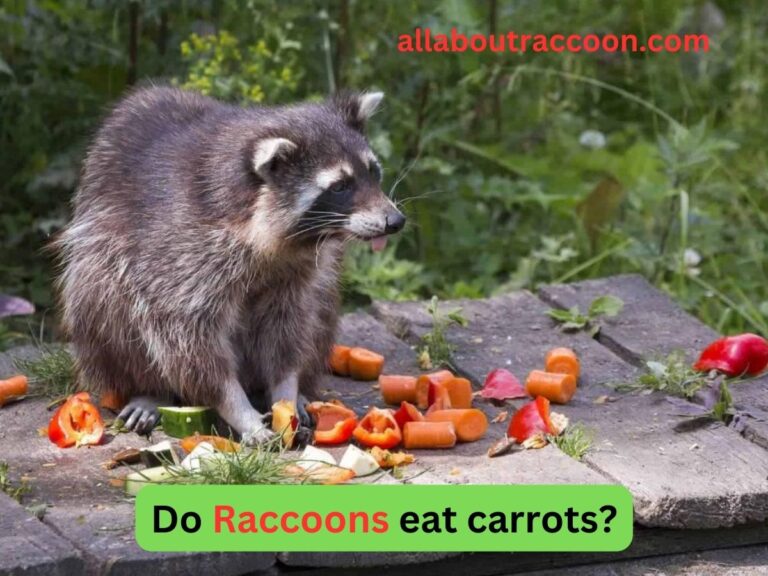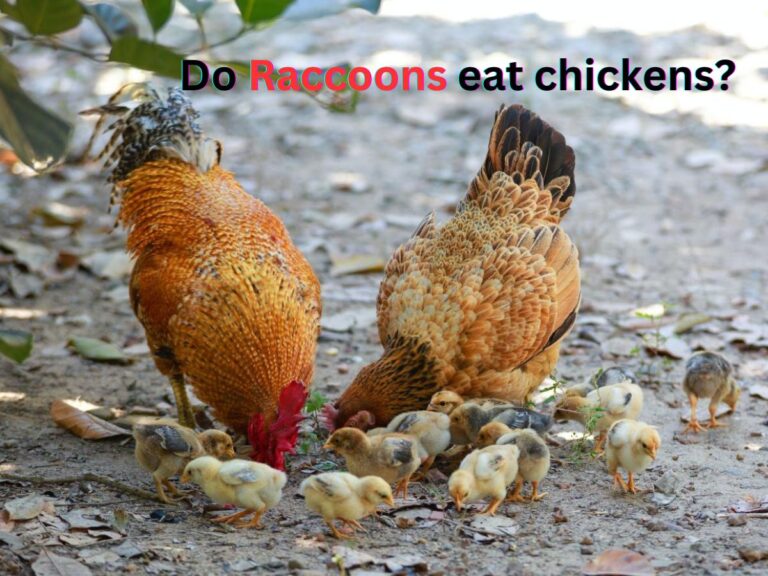What to Feed a Baby Raccoon?-Complete Guide!
Raccoons are captivating and curious creatures. Some states consider raccoons as pets while others do not. Raccoons are omnivorous and eat a variety of food including plants and animals. But you have ever wondered: what to feed a baby raccoon? It’s a question of concern for pet parents and wildlife experts.
These charming critters are known for their inquisitive nature and adorable appearance. But when it comes to caring for these creatures, what do you feed them? Don’t worry. This guide will show you how to take care of baby raccoons. You’ll learn how to give them the right food while letting them keep their wild nature. So let’s come to read.
What to feed a baby raccoon?
Baby raccoons require a diet that closely resembles their natural wild food, but it’s crucial to be aware that they have difficulty digesting cow’s milk, especially when compared to adult raccoons. Therefore, it’s essential to feed them a milk replacement formula specially formulated for baby raccoons.
To create an appropriate homemade formula for baby raccoons, mix together a can of condensed milk, two cups of whole milk, two egg yolks, and one teaspoon of corn syrup. This nourishing blend will help meet the dietary needs of young raccoons.
There are various brands of milk replacement formulas available in many stores, so you can choose one that is convenient for you to purchase. Be sure to carefully follow the formula’s instructions, as overfeeding can pose a danger to baby raccoons.
Around the age of 6 weeks, you can start introducing solid foods into baby raccoons’s diet. Begin with small amounts of soft foods, such as mashed bananas, applesauce, or yogurt. Additionally, you can offer them cooked eggs, cooked chicken, or even fish.
As the baby raccoon grows older, you can gradually increase the amount of solid food. By the time they reach 12 weeks of age, their diet should primarily consist of solid food.
Feeding schedule for baby raccoons:
- Age 0-6 weeks: Kitten replacement formula every 2-3 hours.
- Age 6-8 weeks: Kitten replacement formula every 4 hours, with small amounts of soft food offered between feedings.
- Age 8-12 weeks: Kitten replacement formula every 6 hours, with a variety of solid foods offered throughout the day.
- Age 12 weeks and up: Mostly solid food, with kitten replacement formula offered as needed.
Baby Raccoon Nutrition- A comprehensive guide!
1. Milk replacement formula:
If you come across an orphaned baby raccoon, it’s crucial to provide proper care. Offering a milk replacement formula is essential because baby raccoons have difficulty digesting cow’s milk. So, what to feed a baby raccoon is strategic.
2. Transitioning to Solid Foods:
As your baby raccoon continues to grow, it’s essential to introduce a diverse range of foods to replicate their natural omnivorous diet:
- Fruits and Vegetables: Offer fresh fruits like apples, grapes, and berries to your baby raccoon. Additionally, you can incorporate vegetables such as sweet potatoes and carrots into their diet. Be sure to cut these foods into small, manageable pieces for easy consumption.
- Protein Sources: Since raccoons are omnivores, they require protein for proper bodily function and growth. Provide them with cooked chicken, eggs, and even mealworms as protein-rich options.
- Commercial Diets: Some pet stores and online retailers offer high-quality commercial raccoon diets specially formulated to meet their nutritional requirements. These can be a convenient choice to ensure your raccoon’s dietary needs are met.
3. Hydration is Important:
Don’t forget to give water to baby raccoons. Always provide fresh water in a shallow dish to keep your baby raccoon hydrated. Use a shallow dish to prevent accidental drowning, as raccoons are naturally curious and may play in the water.
4. Gradual Weaning:
As your baby raccoon grows, gradually reduce their milk intake and increase the amount of solid food. This transition is vital for their development, allowing them to adapt to a more diverse diet.
5. Meeting Their Nutritional Needs:
Baby raccoons need essential nutrients for proper growth and development. Ensure they receive essential nutrients in their diet as described below:
- Calcium: Crucial for bone development, you can provide calcium supplements or calcium-rich foods like yogurt.
- Vitamins: Offer a mix of fruits and vegetables to cover their vitamin requirements. Consult with a wildlife expert for guidance on vitamin supplements if needed.
- Fiber: Raccoons also need fiber for digestion. Incorporate foods like oats and leafy greens into their diet.
How to feed baby raccoons?
Feeding baby raccoons can be a complex and specialized task. If you find orphaned or abandoned baby raccoons and you are unable to contact a wildlife rehabilitator, here are basic steps on how to feed them:
Feeding equipment: You’ll need a small syringe or a specialized pet bottle with a nipple designed for wildlife feeding.
Prepare the Formula: Follow the instructions on the raccoon milk replacement formula packaging to mix the formula with water. Ensure it’s at the right temperature, typically body temperature (around 100°F or 37°C).
Get the Baby Raccoon Ready: Wear gloves to handle the baby raccoon to minimize stress and reduce the risk of disease transmission. Place the baby raccoon in a secure, upright position.
Feeding Technique: Gently introduce the syringe or nipple into the baby raccoon’s mouth. Consequently, allow the baby raccoon to suckle at their own pace. Do not force the formula into their mouth to avoid aspiration.
Here’s the feeding schedule for baby raccoons based on their weight in a table format:
| Baby Raccoon Weight (grams) | Amount per Feeding (milliliters/ccs) | Number of Feedings per Day |
| 60 grams | 3 ml | 7-8 times per day |
| 100 grams | 5 ml | 7-8 times per day |
| 200 grams | 10 ml | 7-8 times per day |
Please note that these are general guidelines, and it’s essential to monitor the baby raccoon’s growth and adjust the feeding amounts accordingly.
Additional tips for feeding a baby raccoon:
- Heat the milk replacement formula to body temperature before feeding.
- Feed the raccoon in a quiet, warm place.
- Use a small syringe or bottle to feed the raccoon.
- Be patient and gentle.
- Monitor the raccoon’s weight to make sure they are getting enough to eat.
- Ensure you have the required permits to care for a baby raccoon.
- Wash your hands thoroughly before and after handling the raccoon.
- Wear gloves to prevent scratches or bites when handling the raccoon.
Conclusion:
So the answer is “What to feed a baby raccoon” is a milk replacement formula. Baby raccoons are fed with milk replacement formula in the early days after their birth, as they are not able to digest cow milk.
Gradually, with time, you should start to add some solid food to the kittens’ diet. Baby raccoons need a mix of special foods that are kind of like what they eat in the wild.
Remember to follow the basic instructions before feeding a baby raccoon. How much they eat depends on how heavy they are, and they need to eat many times a day to stay strong. It’s crucial to talk to experts or vets to get the best advice on taking care of these cute animals.
FAQs:
Baby raccoons, also known as kits, can eat a diet that includes formula specifically designed for raccoons or kitten milk replacers. It’s essential to consult with a wildlife rehabilitator or veterinarian for proper care instructions, as raccoons have specific dietary needs and feeding schedules. Never feed them regular cow’s milk or human food.
A diet of formula and solid foods.
Formula: Kitten replacement milk or a homemade formula.
Solid foods: Scrambled eggs, cooked chicken or turkey, yogurt, fruits and vegetables (softened or pureed), kitten food.
Yes, baby raccoons can eat cooked chicken as part of their diet, but it should not be their primary or exclusive food source. A specialized raccoon formula or kitten milk replacer is essential for their proper nutrition, and chicken can be given as an occasional treat.
You can tell a baby raccoon is hungry if it makes whining sounds, appears restless, exhibits rooting behavior, opens its mouth, or makes sucking motions.
Baby raccoons should be fed a volume of milk formula that ranges from 1-5% of their body weight in milliliters (ml=cc) during each feeding. It’s essential to stop before the raccoon is overfilled and refuses to eat. Generally, heavier babies will consume a higher percentage of their body weight during a feeding.







